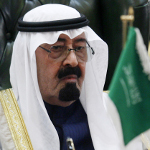Under the aging King Abdullah, those in the Al Saud family seeking to advance economic, legal, and political (or, perhaps more accurately, administrative) reform seem to be in a race against the clock. The assumption of many inside the Kingdom is that the next two to three years could be decisive. Elite figures sympathetic to reform are concerned that what has been achieved—modest by international standards, significant by Saudi Arabia’s—will stall under a King Sultan or a King Naif (the more likely of the two, given health concerns about Crown Prince Sultan). Changes made since Abdullah acceded in 2005 lack an institutional basis and have not captured the imagination of the Saudi public, leading to the impression that they constitute personal whims that can just as easily be taken back or put indefinitely on the back burner.
Reform in Saudi Arabia does not constitute a clearly articulated program intended to reach a defined outcome; rather, what is often referred to as reform is more about changing the environment. A more open environment has certainly emerged in the last few years. Various media outlets controlled by Saudi Arabia’s competitive ruling elite publish different commentaries on the local and regional political scene. But this is not a true debate; it is more a public posting of distinct opinions. Among the issues receiving the most attention are the appropriate role of women and the related role of the mutawa’in (religious police), public sector corruption, education reform, and the need for Saudi nationals to be better equipped for a more dynamic private sector.
Thus far reform has largely meant putting putative reformers behind key desks in ministries and public bodies. So, in marked contrast to Saudi tradition and to the wider regional trend, the education ministry has become something of a reformist fiefdom, at least as far as the top jobs are concerned, making it an important focus of Abdullah patronage in the intra-Saud power play. Actual reform of educational practice, however, has not progressed beyond some curricula and course book changes, as well as the establishment of a controversial co-educational island of excellence, the King Abdullah University of Science and Technology (KAUST) near Jeddah. KAUST, notably, is not under the authority of the higher education ministry, even though it is envisaged that it will eventually be subjected to formal state control. One area that is likely to get attention, whoever succeeds Abdullah, is technical training. Saudi Arabia cannot bridge the gap between population and economic growth without obliging Saudi nationals to work more, and for less, in the private sector.
Judicial reforms have in practice seen the creation of a new Supreme Court as the highest court of appeal, but this is essentially a name change for what was previously a function of the Supreme Council of the Judiciary (SCJ). The new role envisaged for the SCJ, the training of often ill-informed judges, has yet to begin. Although many of the salaried ‘ulema (clerics) remain the same highly conservative old breed, the SCJ is under new management. Codification of shari’a (Islamic law) —potentially important for a more predictable legal environment for business and those seeking redress for human rights infractions—has been agreed upon. When it will be published in an authorized majalla (gazette) or written compendium of legal judgments designed to constitute legal precedent, is less clear. A previous official majalla dating back to the era of Ibn Saud, who founded the state in 1932, soon fell into disuse.
Getting the Higher Council of ‘Ulema to agree to codification in principle has taken several years. With the exception of big ticket items such as the foreign investment law and Qur’an-based punishments for social crimes, anything resembling written law is pretty much uncharted territory in the Kingdom. An eventual new majalla is not expected to redirect Saudi law onto a new, more liberal, footing, but rather to create a more transparent and predictable legal path for Saudis and for foreign businesses. Controversial social issues, such as male guardianship over adult women and the inequities of child marriage, are the subject of extensive media debate but there is no expectation that the promised majalla will change them fundamentally.
Regarding economic reform, the traditional clientelism of what remains an essentially rentier state stands in the way of an entrepreneurial class that could in time be the basis of political change. A patronized Saudi private sector that is not very private and that depends on state/princely patronage is likely to remain a feature of Saudi political economy. Share offerings may be resumed at pre-recession levels, but these are minority stakes mainly for Saudi nationals. Majority ownership is liable to remain in the hands of the powerful few, while much of public industry is likely to see at most only privatization of a minority holding.
Regarding explicitly political reform, there is little progress. King Abdullah has scaled back his ambitions on this front due to fears among the more conservative senior al-Saud that even prospective partly elected and relatively disempowered regional councils would create a dangerous precedent. The second round of elections to the local councils originally scheduled for 2009 have been postponed to 2011. The King’s focus is rather on making the public sector more efficient, with corruption in particular being quietly targeted. More significant changes, such as giving the Majlis al-Shura (consultative council, the Kingdom’s appointed quasi-parliament) any actual powers, are unlikely for now. There is some attention to the more modest issue of broadening Shura membership to make it represent more of the different strands of Saudi society.
All in all, substantive Saudi reform is largely illusive. While the media commentariat are active, the jury is out on what the practical impact will be. So far, a change in the mood music without an institutional basis for greater progress has had little effect on the attitudes or expectations of Saudi nationals, many of whom are understandably circumspect about the sustainability of current policies after Abdullah.






